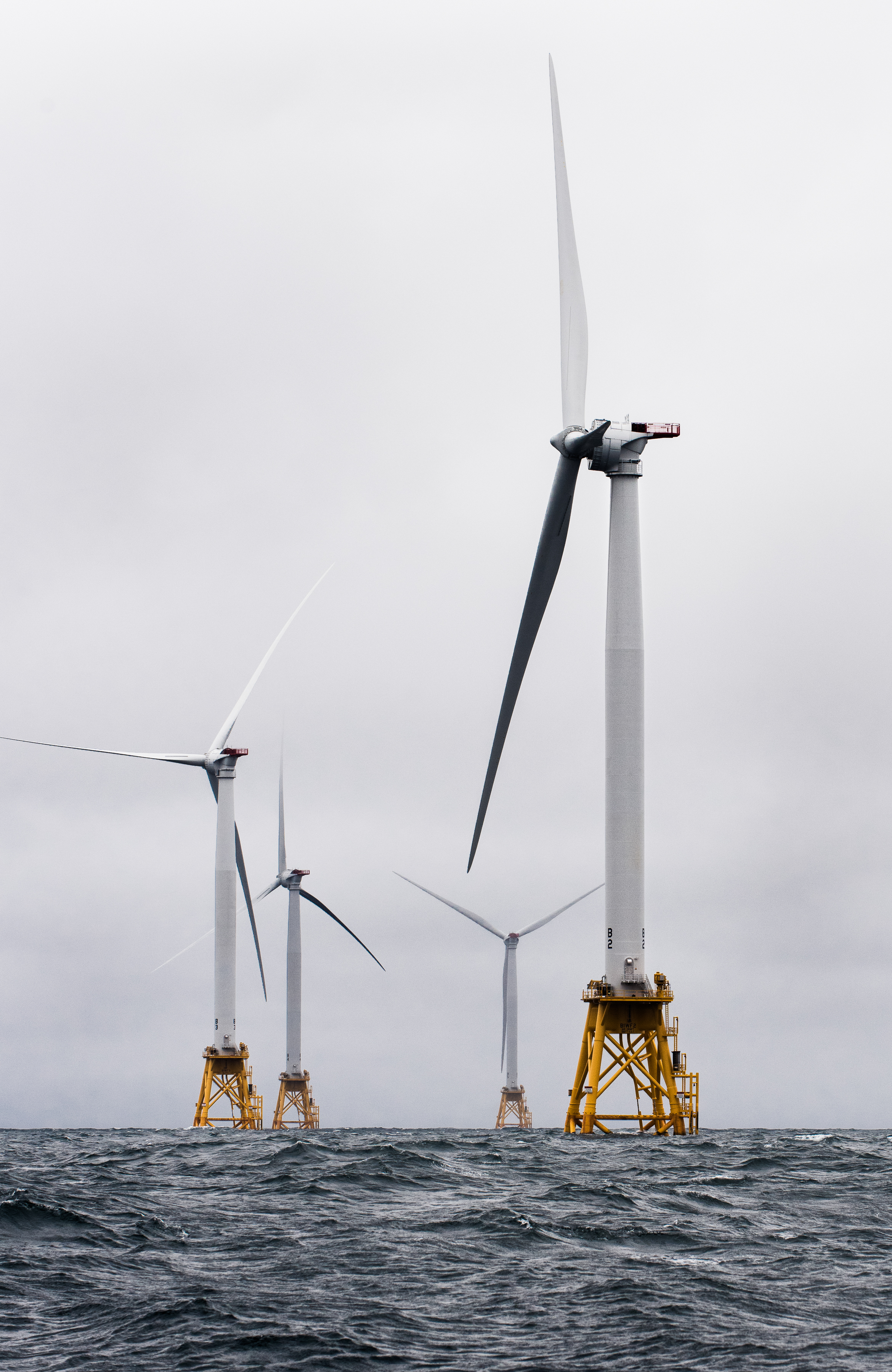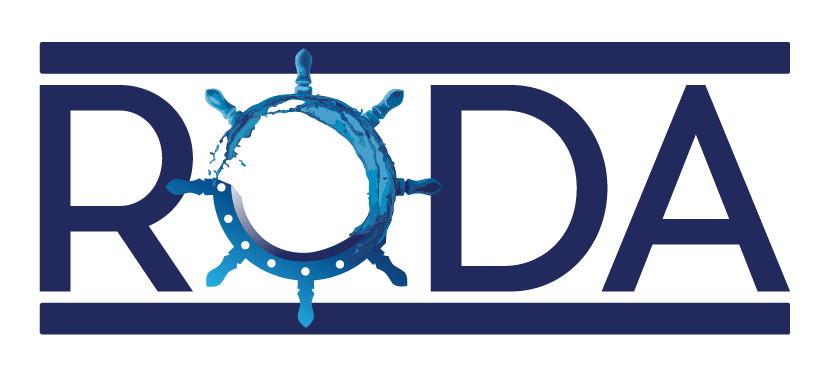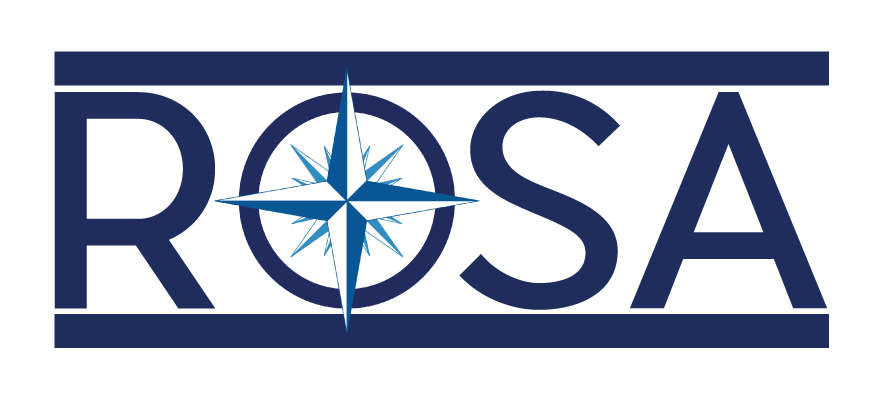Offshore Wind in the Northeast Region
This webpage is collaboratively managed by the Mid-Atlantic and New England Fishery Management Councils
Photo by Dennis Schroeder/NREL, licensed under CC BY-NC-ND 2.0
The Mid-Atlantic and New England Councils (MAFMC and NEFMC), working with NOAA Fisheries, collaboratively developed this page to link to information and resources that may be relevant to offshore wind energy development and fisheries. This page also provides information on the Councils' involvement in, and comments on, wind energy development activities, as well as resources for its stakeholders.
Stay Informed
Notices to Fishermen and Comment Opportunities
Our Offshore Wind - Stay Informed page has links and resources to help you stay informed about offshore wind projects in the Northeast region. Find the latest notices or sign up to receive email updates about activities in your area.
Bureau of Ocean Energy Management
The Bureau of Ocean Energy Management (BOEM) is the lead federal agency responsible for leasing and oversight/regulation of offshore wind energy development on the U.S. Outer Continental Shelf. Visit the links below to engage in and stay informed about BOEM activities.
Mid-Atlantic Council Updates
The Mid-Atlantic Council receives updates on offshore wind development at each Council meeting. These updates are not intended to be exhaustive and focus on information of greatest relevance to Mid-Atlantic Council members. A complete archive of past updates is available on the MAFMC Offshore Wind Updates page.
Council Engagement on Offshore Wind
To the extent practicable, the Councils comment directly to BOEM, the Coast Guard, and other agencies in response to specific requests for input. For individual projects, this includes submitting comments during the scoping period and on draft environmental impact statements. Other comment opportunities include calls for information on potential new wind energy areas, proposed lease sale notices and related environmental assessments, and draft port access route studies.
Federal and state agencies, fishing industry members and fishery managers, and wind developers have established various mechanisms by which to coordinate and promote the coexistence of fisheries and offshore wind farms.
Responsible Offshore Development Alliance
The Responsible Offshore Development Alliance (RODA) is a broad membership-based coalition of fishing industry associations and fishing companies with an interest in improving the compatibility of new offshore development with their businesses. It endeavors, through collaborations with NOAA Fisheries and other partners, to coordinate science and policy approaches to managing development of the Outer Continental Shelf in a way that minimizes conflicts with existing traditional and historical fishing. In March 2019, NOAA Fisheries and BOEM signed a 10 year Memorandum of Understanding with RODA.
Responsible Offshore Science Alliance
The Responsible Offshore Science Alliance (ROSA) is an independent 501(c)(3) organization dedicated to providing for and advancing regional research and monitoring of fisheries and offshore wind interactions in federal waters through collaboration and cooperation in order to: (a) Increase salient and credible data on fisheries and wind development; and (b) increase the understanding of the effects of wind energy development on fisheries and the ocean ecosystems on which they depend.
Regional Wildlife Science Collaborative
The Regional Wildlife Science Collaborative (RSWC) is led by four sectors with equal representation: federal agencies, states, environmental non-governmental organizations, and the offshore wind industry. The mission of the RWSC is to collaboratively and effectively conduct and coordinate relevant, credible, and efficient regional monitoring and research of wildlife and marine ecosystems that supports the advancement of environmentally responsible and cost-efficient offshore wind power development activities in U.S. Atlantic waters. The RWSC focuses on non-fisheries wildlife.
Offshore Wind Resources
-
-
The Essential Fish Habitat (EFH) Mapper is an interactive platform for viewing maps of habitats identified as necessary to managed fish species for spawning, breeding, feeding, or growth to maturity. An EFH consultation with NOAA Fisheries is required whenever a federal agency authorizes, funds, or undertakes an action (such as authorizing construction of a wind farm) in an area that will affect EFH. More information on the EFH consultation process is available on the NOAA Fisheries web page.
The Protected Resources: Section 7 Mapper is an interactive platform for identifying where endangered and threatened species and their critical habitat occur within the Greater Atlantic Region. All federal actions that may affect a species or critical habitat listed under the Endangered Species Act (ESA) must undergo a consultation between the lead federal agency and NOAA Fisheries or the U.S. Fish and Wildlife Service, depending on the species. All offshore wind activities are likely to require an ESA consultation with NOAA Fisheries. More information on the ESA Section 7 consultation process is available on the NOAA Fisheries web page.
-
The Mid-Atlantic Ocean Data Portal and Northeast Ocean Data Portal are online resources that consolidate available data to visualize and analyze ocean resources and human use information such as fishing grounds, recreational areas, shipping lanes, habitat areas, and energy sites, among others. Data include offshore project areas and cable corridors for certain wind energy projects.
-
The U.S. Department of Energy (DOE) conducts and funds research and development activities related to offshore wind energy, through its Wind Energy Technology Office. To stay informed about wind energy activities and public comment opportunities, sign up to receive email updates from the DOE. Visit the pages linked below to learn more.
-
-
-
Achieving Co-existence between Fisheries and Offshore Wind Development in the U.S., November 2019. Presented by Andy Lipsky (NOAA Fisheries Northeast Fisheries Science Center) and Annie Hawkins (RODA) at the Symposium on Marine Resources and Offshore Wind in Bremerhaven, Germany.
NOAA Fisheries is participating in several international working groups through ICES, including a new Working Group on Offshore Wind Development and Fisheries, the Working Group on Marine Benthal and Renewable Energy Developments (which will host a symposium in Rhode Island in April 2020), and the Working Group on Offshore Renewable Energy. In addition, the ICES Annual Science Conference which took place in Copenhagen, Denmark in September 2020 included a session on the co-existence of fisheries and offshore wind energy development.
-
Offshore Wind Facts (developed by the Special Initiative on Offshore Wind (SIOW))
Fisheries and Offshore Wind Interactions: Synthesis of the Science (2023, NOAA Technical Memorandum NMFS-NE-291)
NOAA Fisheries NEFSC Presentation: Fisheries in a New Era of Offshore Wind Development
Mid-Atlantic Fishery Management Council: Offshore Wind Best Management Practices Workshop
Report of the MAFAC Offshore Wind Ad Hoc Working Group (7/1/2020)
Contacts
Mid-Atlantic Council: Julia Beaty, jbeaty@mafmc.org, (302) 526-5250
New England Council: Jennifer Couture, jcouture@nefmc.org, (978) 465-0492 (ext. 111)
NOAA Fisheries Greater Atlantic Regional Office: Sue Tuxbury, susan.tuxbury@noaa.gov, (978) 281-9176
NOAA Fisheries Northeast Fisheries Science Center: Andy Lipsky, andrew.lipsky@noaa.gov, (401) 829-8286
Disclaimer: Many of the links on this page lead to external websites not managed by the Mid-Atlantic or New England Council. We have made every effort to ensure that the resources listed on this page are relevant and up-to-date. However, the Councils cannot guarantee the accuracy of information provided on non-Council websites. References to external websites do not constitute endorsement or recommendation by either Council. If you have questions or concerns, please contact the staff members listed at the bottom of this page.
State Pages and Resources
New Hampshire Commission to Study Offshore Wind and Port Development
Massachusetts Fisheries Working Group on Offshore Wind Energy
Rhode Island Coastal Resources Management Council –Wind Energy
New York State Energy Research and Development Authority (NYSERDA)
Relevant International Activities
Achieving Co-existence between Fisheries and Offshore Wind Development in the U.S., November 2019. Presented by Andy Lipsky (NOAA Fisheries Northeast Fisheries Science Center) and Annie Hawkins (RODA) at the Symposium on Marine Resources and Offshore Wind in Bremerhaven, Germany.
NOAA Fisheries is participating in several international working groups through ICES, including a new Working Group on Offshore Wind Development and Fisheries, the Working Group on Marine Benthal and Renewable Energy Developments (which will host a symposium in Rhode Island in April 2020), and the Working Group on Offshore Renewable Energy. In addition, the ICES Annual Science Conference which took place in Copenhagen, Denmark in September 2020 included a session on the co-existence of fisheries and offshore wind energy development.
Information and Resources
Survey Recommendations
NOAA Fisheries Recommendations on Habitat Mapping for Wind Energy Development (updated 3/29/21)
ROSA Offshore Wind Project Monitoring Framework and Guidelines (March 2021)
NOAA Fisheries Habitat and Protected Resources Mapping Applications
The Essential Fish Habitat (EFH) Mapper is an interactive platform for viewing maps of habitats identified as necessary to managed fish species for spawning, breeding, feeding, or growth to maturity. An EFH consultation with NOAA Fisheries is required whenever a federal agency authorizes, funds, or undertakes an action (such as authorizing construction of a wind farm) in an area that will affect EFH. More information on the EFH consultation process is available on the NOAA Fisheries web page.
The Protected Resources: Section 7 Mapper is an interactive platform for identifying where endangered and threatened species and their critical habitat occur within the Greater Atlantic Region. All federal actions that may affect a species or critical habitat listed under the Endangered Species Act (ESA) must undergo a consultation between the lead federal agency and NOAA Fisheries or the U.S. Fish and Wildlife Service, depending on the species. All offshore wind activities are likely to require an ESA consultation with NOAA Fisheries. More information on the ESA Section 7 consultation process is available on the NOAA Fisheries web page.
Regional Ocean Data Portals
The Mid-Atlantic Ocean Data Portal and Northeast Ocean Data Portal are online resources that consolidate available data to visualize and analyze ocean resources and human use information such as fishing grounds, recreational areas, shipping lanes, habitat areas, and energy sites, among others. Data include offshore project areas and cable corridors for certain wind energy projects.
Department of Energy
The U.S. Department of Energy (DOE) conducts and funds research and development activities related to offshore wind energy, through its Wind Energy Technology Office. To stay informed about wind energy activities and public comment opportunities, sign up to receive email updates from the DOE. Visit the pages linked below to learn more.
Wind Energy Technologies Office Projects Map – Interactive Map
Strategy to Advance Offshore Wind Energy in the United States
Supply Chain Road Map for Offshore Wind Energy in the United States
Bureau of Ocean Energy Management (BOEM)
Additional Documents and Resources
Offshore Wind Facts (developed by the Special Initiative on Offshore Wind (SIOW))
Fisheries and Offshore Wind Interactions: Synthesis of the Science (2023, NOAA Technical Memorandum NMFS-NE-291)
NOAA Fisheries NEFSC Presentation: Fisheries in a New Era of Offshore Wind Development
Mid-Atlantic Fishery Management Council: Offshore Wind Best Management Practices Workshop
Report of the MAFAC Offshore Wind Ad Hoc Working Group (7/1/2020)




